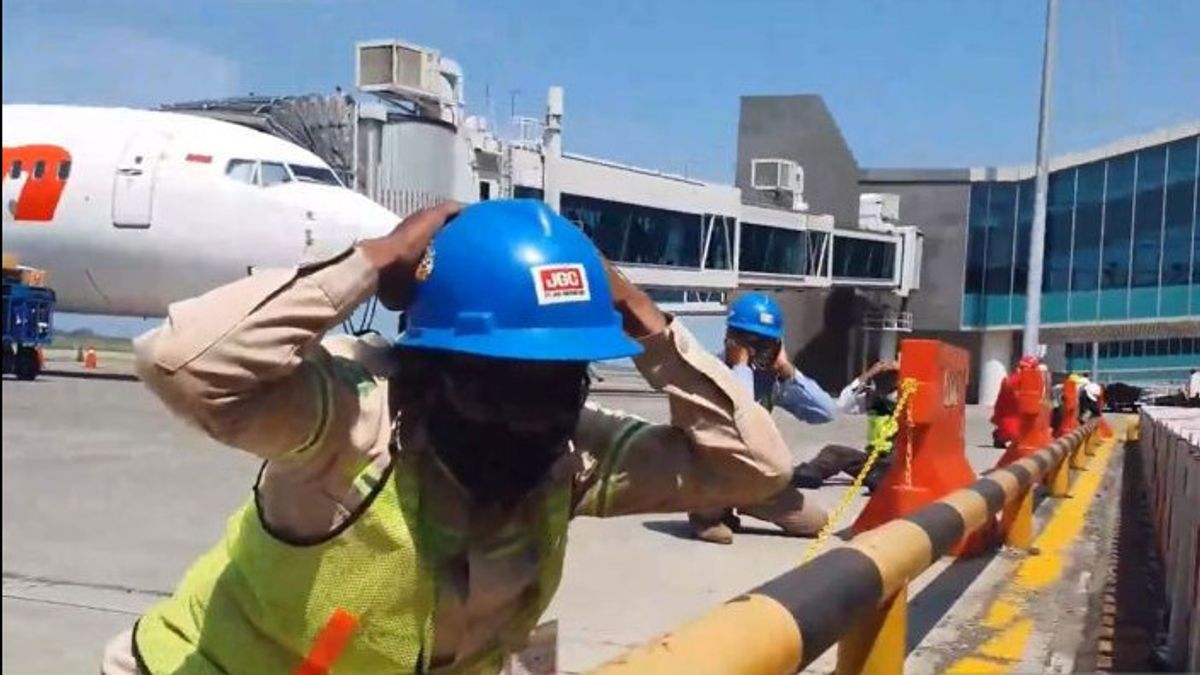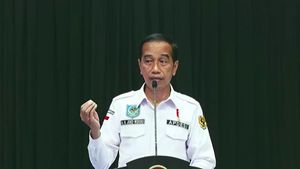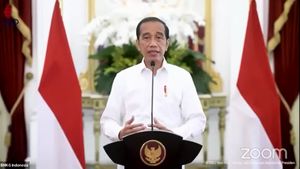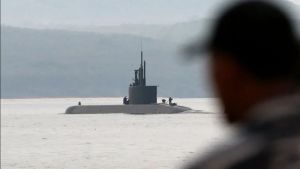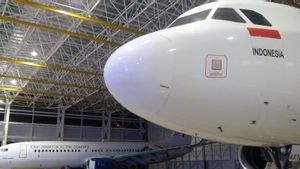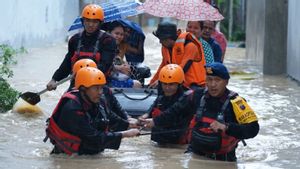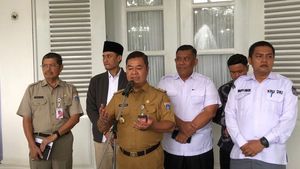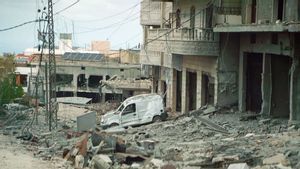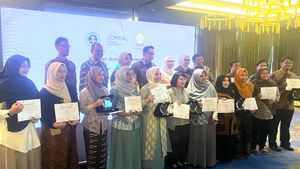JAKARTA - The Meteorology, Climatology and Geophysics Agency (BMKG) in collaboration with Yogyakarta International Airport (YIA) held an earthquake and tsunami simulation.
The simulation has been carried out twice. Previously it was done in 2020.
The BMKG Earthquake and Tsunami Mitigation Coordinator, Daryono, explained that the potential for a megathrust earthquake in the South Indian Ocean, Central Java, and Yogyakarta, could trigger a tsunami that could hit the YIA area.
According to Daryono, the megathrust zone south of Java is a real threat. It is based on several facts.
"First, the existence of a potential earthquake source in the contact area between the Indo-Australian Plate which subducts under the Eurasian Plate, Second, a seismic activity that continues to be active today and Third, historical records of large earthquakes that triggered tsunamis in the past", said Daryono in his written statement, Wednesday, March 30.
The BMKG catalog notes that tsunamis have occurred several times on the southern coast of Java, such as the Banyuwangi 1818 Tsunami, 1840 Java Tsunami, 1859 Pacitan Tsunami, 1904 Kebumen Tsunami, 1921 Java Tsunami, 1957 Pangandaran Tsunami, 1994 Banyuwangi Tsunami, and 2006 Pangandaran Tsunami.
Daryono added that concrete mitigation efforts in the airport environment in creating safety and without falling victims (zero victims) for airport users on tsunami-prone beaches are not impossible. These lessons can be drawn from the destructive tsunami of Tohoku Japan which was triggered by a magnitude 9.0 earthquake on March 11, 2011.
According to him, the devastating tsunami that hit Sendai Airport at that time could be anticipated quickly and carefully by airport officials. All evacuation scenarios went according to plan, although there was great damage and material loss at Sendai Airport, no casualties were reported.
"The success of the tsunami mitigation system at Sendai Airport would be the best example to emphasize that the right procedures in managing the crisis can actually save the lives of many people", he said as quoted by Antara.
SEE ALSO:
In the simulation, YIA Airport tested the quick response of the Airport Operation Control Center when it received a tsunami early warning from the BMKG. The simulation also examines the process of evacuating passengers and airport service users, as well as setting up aircraft in the event of an earthquake with the potential for a tsunami.
"The simulation was carried out to train a rapid response to tsunami early warnings based on the worst-case scenario of an 8.8 magnitude megathrust earthquake in Southern Java to realize YIA as a Critical Airport Infrastructure that is Earthquake and Tsunami Resilient", said BMKG facilitator, Suci Dewi Anugrah.
On the same occasion, the General Manager of PT Angkasa Pura I Yogyakarta, First Marshal of Indonesian Army Agus Pandu Purnama, said that YIA Airport would continue to strengthen the earthquake and tsunami mitigation system at YIA Airport, including by preparing tsunami evacuation facilities and infrastructure and increasing the capacity of airport officers in responding tsunami early warning from BMKG and directing the evacuation process.
This Earthquake and Tsunami Simulation activity was also exposed nationally at the Peak of the 72nd World Meteorological Day (HMD) commemoration, to show the general public the readiness of YIA Airport in dealing with earthquakes and tsunamis.
"Earthquake simulations at airports are a form of optimizing the use of BMKG geo-hydrometeorological information and early warning for all sectors for security, safety, and public welfare", said BMKG Head, Dwikorita Karnawati, at the HMD Warning with the theme Early Warning and Early Action.
The English, Chinese, Japanese, Arabic, and French versions are automatically generated by the AI. So there may still be inaccuracies in translating, please always see Indonesian as our main language. (system supported by DigitalSiber.id)
